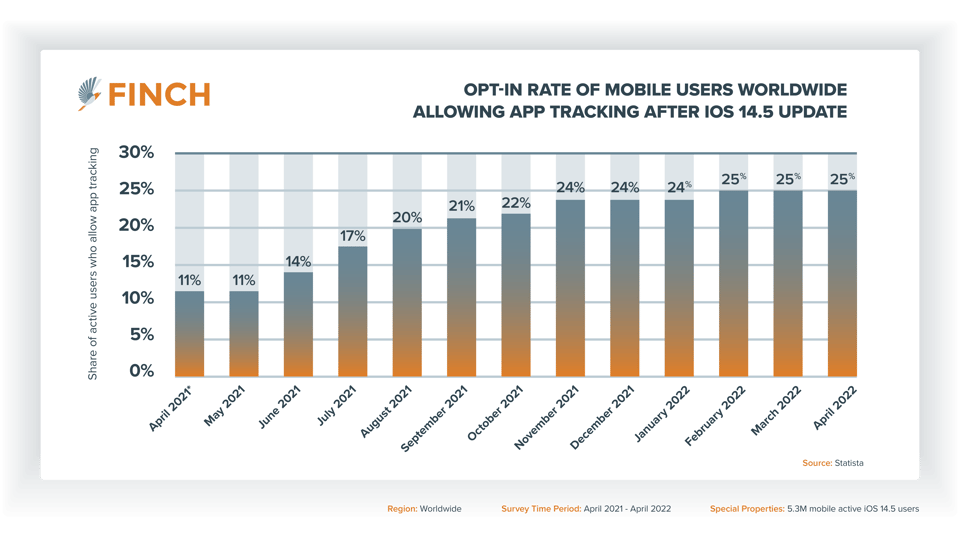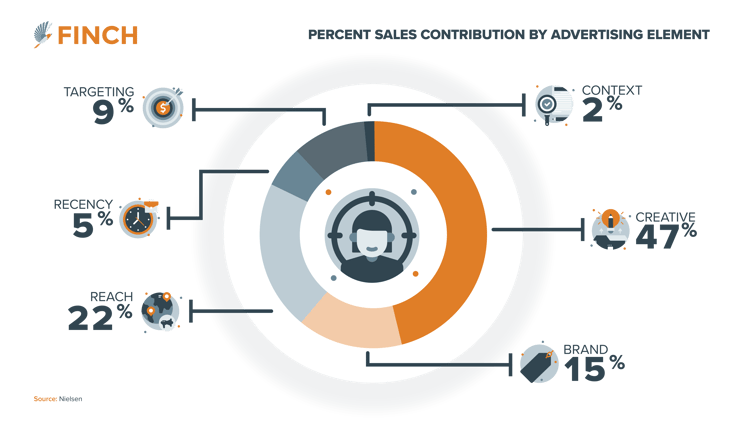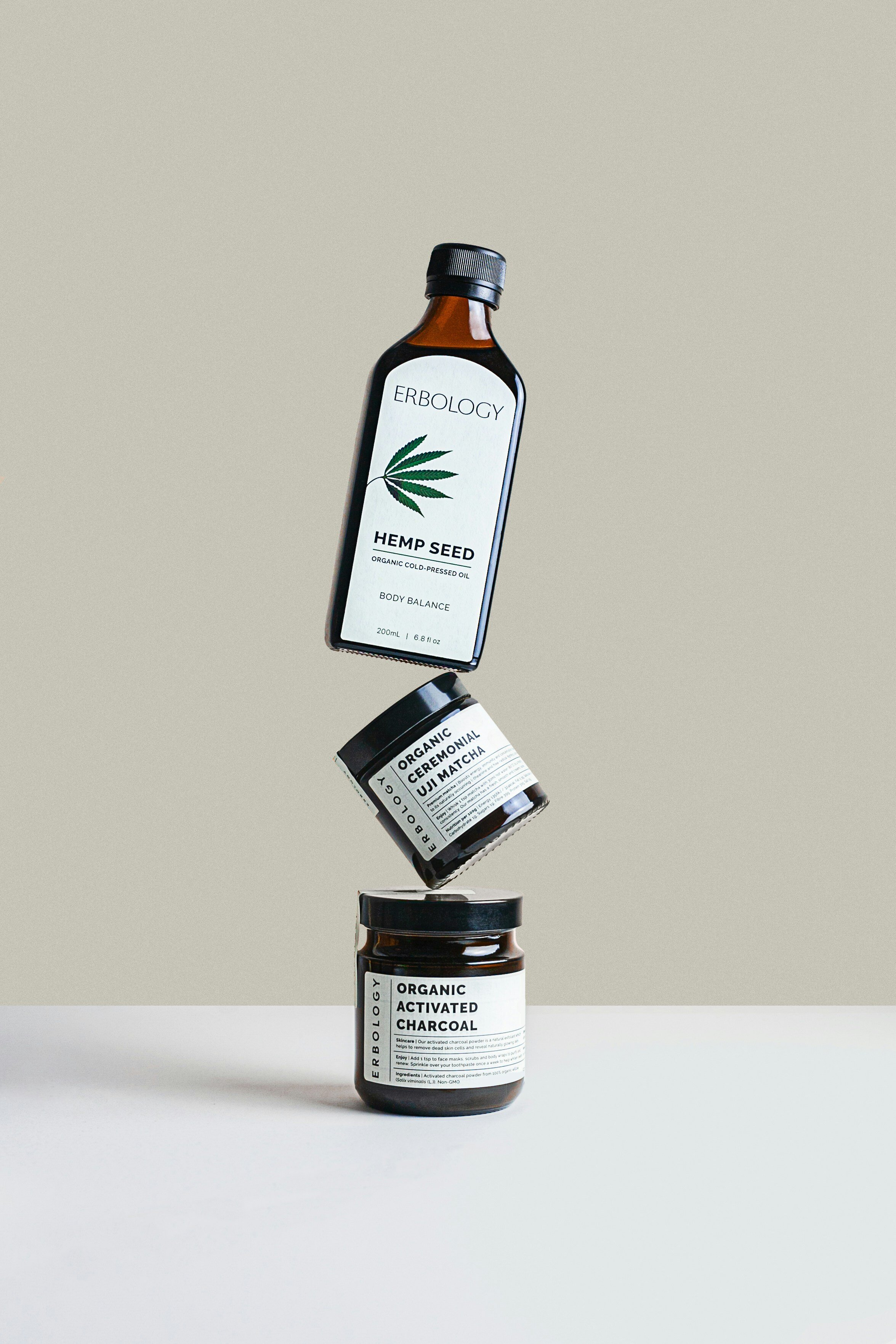With the rapidly changing economic environment, reports of diminishing user numbers, as well as diminishing returns, you’d be justified in asking - are Facebook Ads really worth it anymore?
But there’s still a pathway to success on the platform. It just requires some minor readjustments to the old way of thinking when it comes to Facebook Ads strategy.
But first you might ask: why exactly is Facebook a more challenging place to advertise nowadays?
The iOS 14.5 Problem
The most glaring reason is obviously the changes to the Facebook Ads platform since the dawn of iOS 14.5. This measurably reduced Facebook’s ability (and, naturally, advertisers’ ability too) to track user behavior, conversions and attribute performance.
More People Shopping, Less Ways to Target Them
At the same time, over the course of the pandemic, eCommerce exploded as people shopped for everything and anything from the comfort of their own homes. More advertisers flocked to the platform than ever before in search of the pot of gold at the end of the rainbow. This volume of advertisers naturally leads to higher competition in the auction, and thus higher costs in the form of higher CPMs, CPCs and CPAs.
While these costs rose, retargeting audience sizes diminished as more Apple users opted out of in-app tracking - meaning these users effectively removed themselves from retargeting audiences on Facebook & Instagram. According to latest figures, the percentage of Apple users who have opted in to app tracking is at 25% worldwide. The practicality of this means that retargeting audiences are now potentially only a quarter of the size that they were at the beginning of 2021
Facebook User Growth May Have Plateaued
Finally, these issues have been compounded by Facebook’s stagnating user growth numbers over the past 12 months. With all this in context, you could ask, fairly: surely there’s no point in advertising on Facebook properties anymore?
Well, not exactly - there’s still success to be found on the platform.
So, Do You Still Need Facebook Ads?
To answer this question, it’s worthwhile examining the other digital channels that brands are likely using for advertising - and many brands typically rely heavily on search ads. Search engine marketing is an incredibly powerful tool - indeed, it’s the foundation upon which Finch as a company was originally built - but it has its limitations. It is reliant on potential customers already knowing what they are looking for.
But what happens when you want to reach potential customers who don’t even know that they need your product yet?
You need a discovery-based channel. And Facebook Ads is an ideal discovery channel: low barrier to entry, still relatively cheap, and the potential audience size is (still!) huge.
It also remains an excellent tool for prospecting new customers and generating a pipeline from the top of the funnel. Take it from us, it’s a hugely powerful platform for driving potential customers to take actions down funnel (e.g. product page views or add-to-carts). And believe it or not - you can still drive purchase conversions efficiently on the channel! You just have to figure out the right way to do it.
Talk to a Finch Facebook Expert
Steps For Continued Success with Facebook Ads:
- First things first: the days of granular audience targeting are gone. With the impacts of iOS 14.5 fully felt, the best strategy now is to simplify campaign structure, keep audiences broad, thus concentrating budgets across fewer campaigns and audiences. This enables Facebook’s targeting algorithms to find potential customers more effectively and quickly, rather than having smaller budgets spread across a broader range of campaigns and audiences.
For those of us that previously worked with granular audiences and complex campaign structures, this might be a challenging readjustment - but it’s proven to work.
- Next on the list: ensuring your conversion tracking setup on your website is as effective as possible. It is an absolute necessity for advertisers to set up and validate Facebook Conversions API in order to augment their tracking and attribution from the Facebook Pixel. Simply put, Conversions API is a server side tracking mechanism that can increase conversion attribution and measurement by up to 12%.
How exactly does this help? Well, more conversion attribution means lower CPAs, more accurate data for optimization, and more data for the algorithm to find new prospective customers accurately. It’s a no-brainer. - Additionally, for eCommerce advertisers in particular, it’s also a non-negotiable to ensure that your product catalog is set up correctly and pulling in the correct parameters. This will enable the most accurate, effective and relevant dynamic product ads (DPAs) for retargeting (and prospecting!), and as a result, stronger ROAS and conversion rates.
Ultimately, these first three fundamentals for success are all procedural, and at the end of the day, most people are capable of tackling campaign simplification, more robust tracking and holistic product feed management.
How To Differentiate Yourself & Win With Facebook
They can focus on ad creative. The element that can and will provide the biggest impact on the success of Facebook campaigns in today’s world is creative. Given what we’ve discussed, ad creative is now the most powerful way to achieve differentiation and success with Facebook Ads.
 According to Nielsen, creativity accounts for 47% of total sales impact, compared to 9% from targeting. It’s pretty clear cut. But how can advertisers ensure that they find the creative that wins? Testing. Testing, testing, and more testing.
According to Nielsen, creativity accounts for 47% of total sales impact, compared to 9% from targeting. It’s pretty clear cut. But how can advertisers ensure that they find the creative that wins? Testing. Testing, testing, and more testing.
It is absolutely essential in today’s paid social landscape to set aside a portion of budget (we typically recommend at least 10%) in order to build a robust A/B or multivariate testing roadmap. This consistent testing benefits advertisers in two ways: it uncovers what creatives to scale in the short term, and it builds a long-term feedback loop that informs creative production into the future. This is the absolute key to success.
To build an effective roadmap, all that’s needed are several relatively simple hypotheses, such as:
- “Does product-focused imagery work better than images with people in them?”
- “Does a ‘Shop Now’ CTA work better than a ‘Discover More’ CTA?”
- “Does a sticker with a % discount drive more conversions than a sticker with the $ amount discounted?”
Once a brand, advertiser or marketing department has its testing roadmap, it is just a matter of working on the creative variations to be tested, and implementing the tests on an ongoing basis. At Finch, we provide a bank of testing hypothesis ideas and a roadmap timeline as part of our Objective Templates, enabling advertisers to plan, execute and analyze creative testing at warp speed.
The final element of success on Facebook Ads today is simple but often underestimated: have patience! As much as we’d like overnight success with a silver bullet, ad performance takes time to dial-in and optimize. By focusing on the fundamentals and testing creative on an ongoing basis, there are still incremental gains and, ultimately, big wins to be had on Facebook Ads in today’s world.
If you’d like to chat more about how Finch can help to grow your eCommerce business on Facebook Ads or elsewhere, don’t hesitate to reach out to us now.







